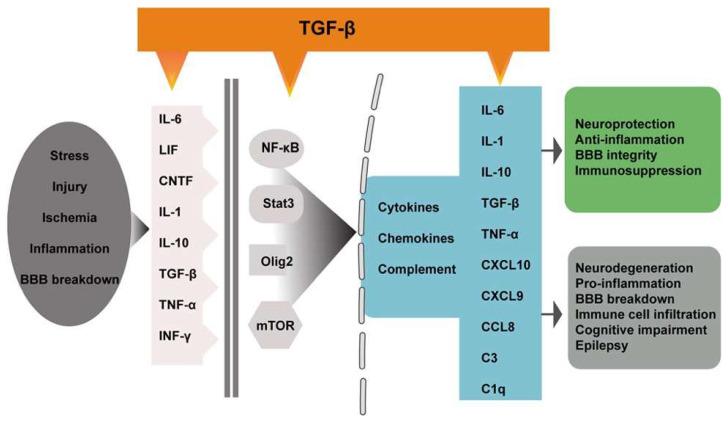Figure 2.
Regulators and signaling pathways of astrocyte reactivity. In response to insults such as stress, injury, ischemia, inflammation, and BBB breakdown, brain cells produce inflammatory factors that trigger astrocyte reactivity through transcriptional pathways involving NF-κB, Stat3, Olig2, and mTOR. These pathways regulate the production of cytokines, chemokines, and complements, which mediate the neuroprotective or neurodegenerative effects of reactive astrocytes, and are also involved in triggering and maintaining astrocyte reactivity. TGF-β regulates astrocyte reactivity through multiple mechanism: inflammatory factors, transcriptional pathways, and downstream target genes.

